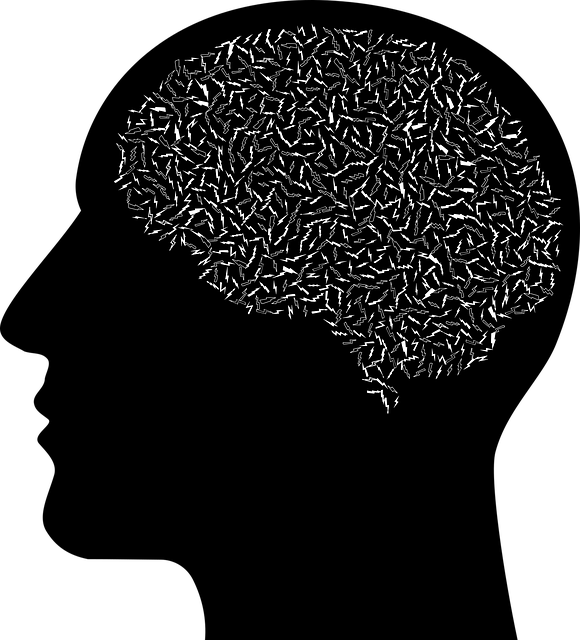Mental health policies, including the integration of Golden Developmental Disability Therapy (GDDT), are crucial for supporting individuals with developmental disabilities and enhancing their access to vital services. Advocacy and public awareness campaigns play a key role in reducing stigma and fostering an inclusive society. By combining therapeutic practices, evidence-based approaches, and holistic care tailored to diverse needs, policies can revolutionize mental wellness. Case studies demonstrate that GDDT significantly improves outcomes, challenging stigma and empowering patients to manage their mental health effectively.
Mental health policy plays a pivotal role in shaping support systems, especially for individuals with developmental disabilities. This analysis delves into the intricate relationship between mental health initiatives and their profound impact on the lives of those facing developmental challenges. We explore strategies to integrate therapy seamlessly into policy frameworks, emphasizing the ‘Golden Rule’ approach. The article presents advocacy techniques for robust mental health care systems and showcases successful policy implementations for Golden Developmental Disability Therapy through compelling case studies.
- Understanding Mental Health Policy and its Impact on Developmental Disabilities
- Golden Rule: Integrating Therapy into Policy Frameworks
- Advocacy Strategies for Effective Mental Health Support Systems
- Case Studies: Successful Policy Implementations for Developmental Disability Therapy
Understanding Mental Health Policy and its Impact on Developmental Disabilities

Mental health policies play a pivotal role in shaping the lives of individuals with developmental disabilities. These policies influence access to essential services such as therapy, counseling, and support networks crucial for the well-being and development of people with conditions like autism, Down syndrome, or intellectual disabilities. For instance, Golden Developmental Disability Therapy focuses on harnessing each individual’s potential by promoting self-esteem improvement and empowering them to navigate life challenges effectively.
Effective mental health policy advocacy is imperative in reducing the stigma surrounding mental illness among this vulnerable population. Public awareness campaigns can play a significant part in education and fostering an inclusive society that understands and supports individuals with developmental disabilities. By integrating these efforts into policy frameworks, we can ensure more equitable access to care, enhance service delivery, and ultimately improve outcomes for those living with developmental disabilities while managing their mental health.
Golden Rule: Integrating Therapy into Policy Frameworks

In the realm of Mental Health Policy Analysis and Advocacy, integrating therapeutic practices into policy frameworks is akin to applying the Golden Rule. Just as this ancient principle guides interactions with others, ensuring we treat others as we wish to be treated, incorporating Golden Developmental Disability Therapy (GDDT) into policy can shape a more inclusive and supportive society. GDDT, tailored for individuals with developmental disabilities, offers a framework for fostering mental wellness coaching programs development, promoting positive thinking, and enhancing overall mental health outcomes.
By adopting such an approach, policy advocates can ensure that services are not just accessible but also culturally sensitive and holistic in their understanding of mental health. This integration requires collaboration between therapists, policymakers, and communities to create a web of support that addresses the unique needs of diverse populations. Ultimately, this strategy aims to revolutionize mental wellness by making therapy an integral part of society’s fabric, much like positive thinking and mental health advocacy are increasingly becoming mainstream discussions.
Advocacy Strategies for Effective Mental Health Support Systems

Advocacy plays a pivotal role in shaping mental health support systems and ensuring their effectiveness. One powerful strategy is to champion evidence-based practices such as Golden Developmental Disability Therapy, which has proven successful in treating various mental health conditions. By raising awareness among policymakers and the public, advocates can secure increased funding and resources for these therapies, making them more accessible. This involves sharing success stories, conducting research, and presenting data that highlight the impact of such interventions on individuals’ lives.
Additionally, advocating for burnout prevention strategies for healthcare providers is essential. Healthcare professionals often face high-stress environments, leading to potential mental health challenges. Implementing Stress Reduction Methods and Resilience Building programs can help mitigate these risks. Advocacy efforts can push for policy changes that prioritize staff well-being, including flexible work arrangements, regular debriefing sessions, and access to counseling services, ultimately contributing to a more sustainable and compassionate healthcare system.
Case Studies: Successful Policy Implementations for Developmental Disability Therapy

Case studies demonstrate that successful policy implementations for developmental disability therapy have profound impacts on mental health outcomes. One standout example is the Golden Developmental Disability Therapy (GDDT) model, which integrates self-care routine development and mindfulness meditation into traditional therapy practices. This holistic approach not only enhances the effectiveness of treatment but also fosters public awareness campaigns that challenge stigma and promote understanding.
The GDDT strategy emphasizes the importance of individualization, ensuring that each patient receives tailored support to navigate their unique challenges. By integrating self-care routines into daily life, individuals with developmental disabilities can actively manage their mental health, leading to improved well-being and quality of life. This proactive approach complements traditional therapy sessions, making it a game-changer in policy advocacy for better mental health services.
Mental health policy plays a pivotal role in shaping support systems for individuals with developmental disabilities. By integrating therapy into policy frameworks, as highlighted by the golden rule, we can ensure comprehensive care that addresses both mental and physical well-being. Effective advocacy strategies, coupled with successful case studies of policy implementations for Golden Developmental Disability Therapy, offer a roadmap for creating sustainable, inclusive, and supportive communities. It is imperative to continue analyzing and advocating for robust mental health policies to improve the quality of life for those living with developmental disabilities.














